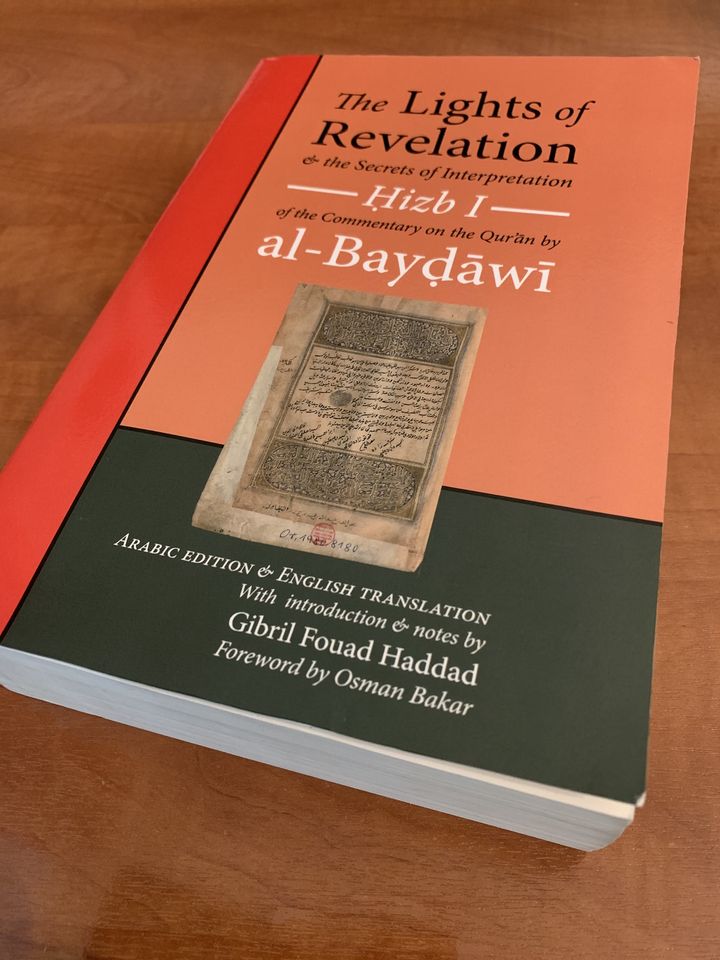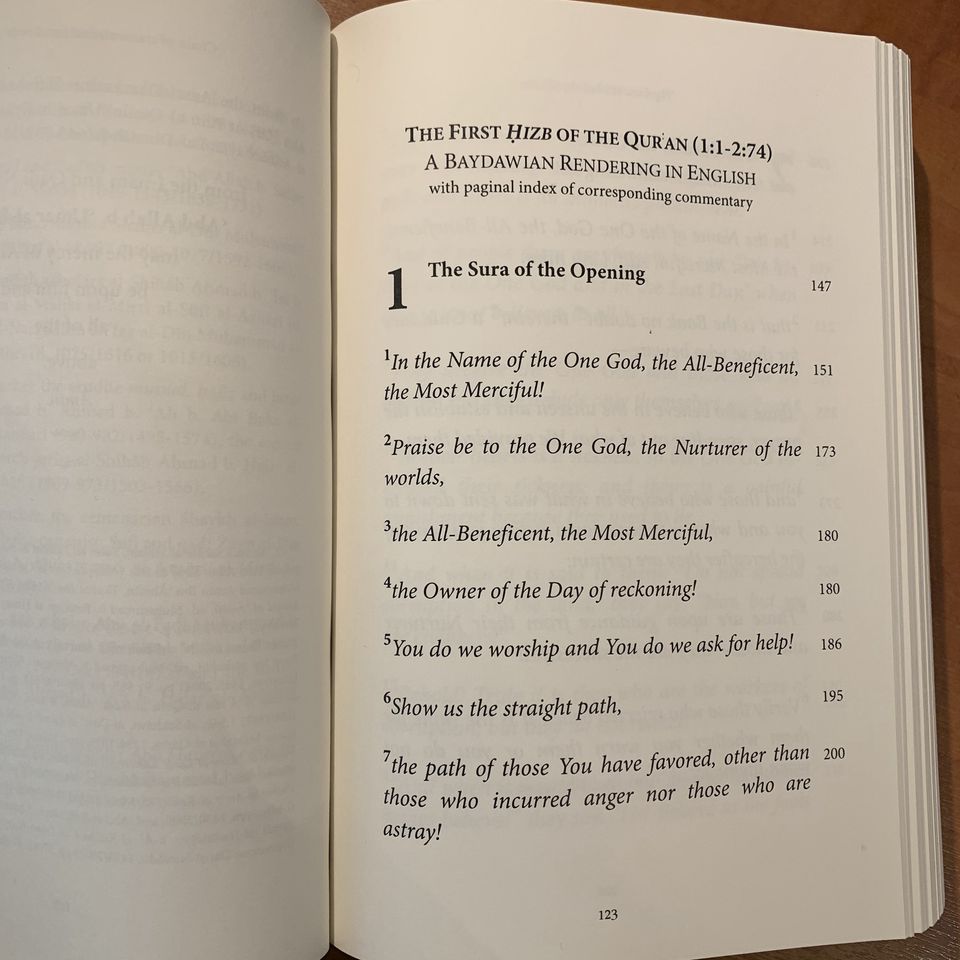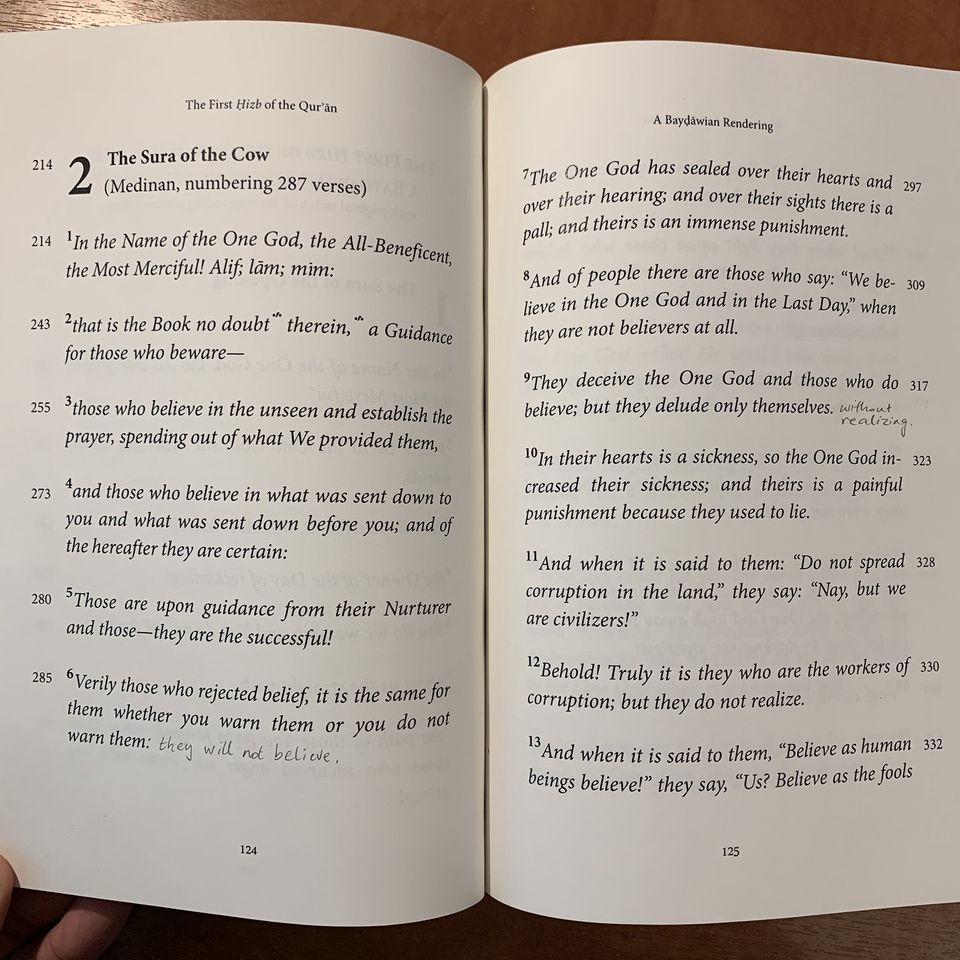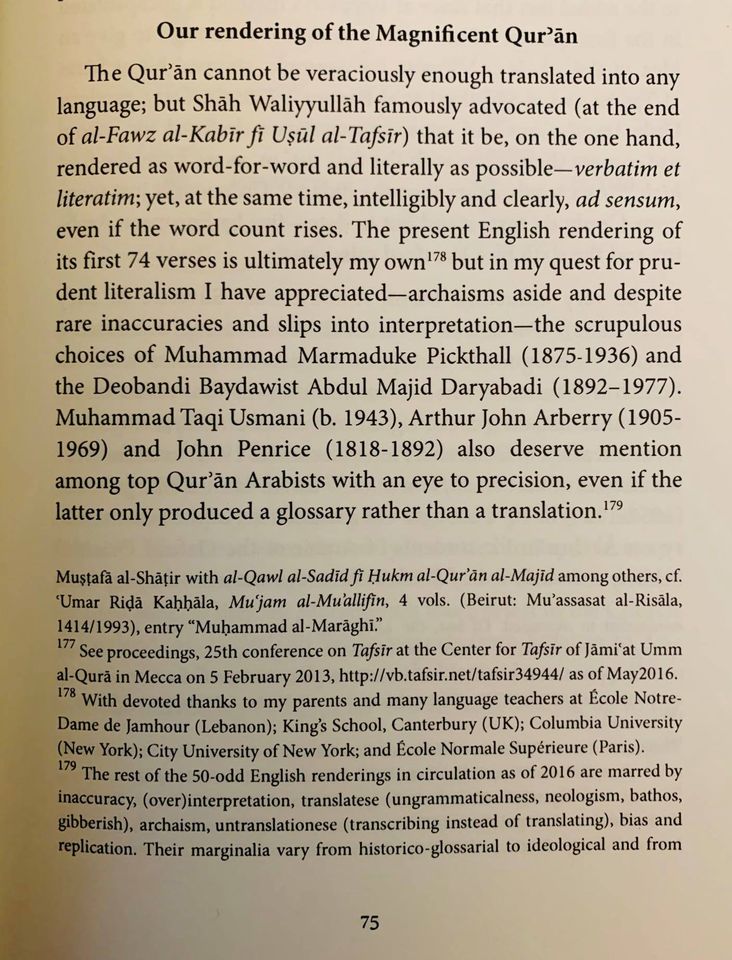Ever wondered how it would look if a great exegete wrote his own Qur’an translation? There are attempts to construct these hypothetically alongside translations of tafsir, such as this work which contains ‘A Baydawian Rendering’ of the Qur’an in English.
It’s easy to show that translation is a form of tafsir (focused on words). What’s less acknowledged is that it can be a very convenient tool for an exegete (or their translator on their behalf) to capture the meaning they have understood. See:
https://twitter.com/tafsirdoctor/status/1171586186424586240…
Scott Lucas (himself a translator of parts of Tabari’s exegesis) argued in 2014 that “the Anglophone world would benefit far more from the partial or complete translation of Qur’anic commentaries than it would from yet another translation of the Qur’an itself.”[1] However, the two can be blended. ‘Pre-determined exegetical translation’ (PET) is a term we can use to describe the process of capturing the detailed explanations of one exegete by adjusting the translation of the Qur’an to fit their stated preferences.
That is the apparent aim of Gibril Fouad Haddad (b. 1960), a Lebanese-born Islamic author and translator now based in Brunei Darussalam, in his work on ‘The Lights of Revelation’ – a pivotal work in traditional Qur’an exegesis. The first volume, containing the first hizb of the Qur’an (i.e. up to 2:74), received a prize at the Sheikh Hamad Award for Translation in 2017. Haddad has expressed his intention to complete the entire work, which would include a full translation of the Qur’an.
Haddad does not elaborate on his Qur’an translation methodology, or what makes it ‘Baydawian’. However, he notes his favoured predecessors and problems he finds in other translations. The Qur’an translation has been extracted from the commentary and presented in advance (serving also as contents page). As you can see, occasional phrases were missed out in the process.
There are two fundamental challenges affecting this process. The first is under-determination: Baydawi (like others) did not gloss every word or express every aspect of his understanding of the text. Therefore, we could expect Haddad to explain his own choices. For example, Baydawi discusses at length the origins of the name ‘Allāh’. But what would he think of translating it as “the One God”? If he were looking over Haddad’s shoulder, might he have said “Don’t write it as if it were: al-ilāh al-wāḥid”?
The second challenge is polyvalence. Exegetes commonly accept multiple possible interpretations (hence translations), and don’t always express their favourite. A standard, linear translation would, therefore, fail to capture this diversity/ambiguity.
As more tafsir works are seeing the light in translation, it is a good time for these methodological questions to receive attention, as it is potentially very interesting to see ‘Baydawi’s translation’ and compare with ‘Razi’s’, ‘Tabari’s’, ‘Ibn ‘Ashur’s’, and so on.
References:
[1] https://www.academia.edu/…/_Is_the_Quran_Wise_Is_God_the_Ma…
Sohaib Saeed



